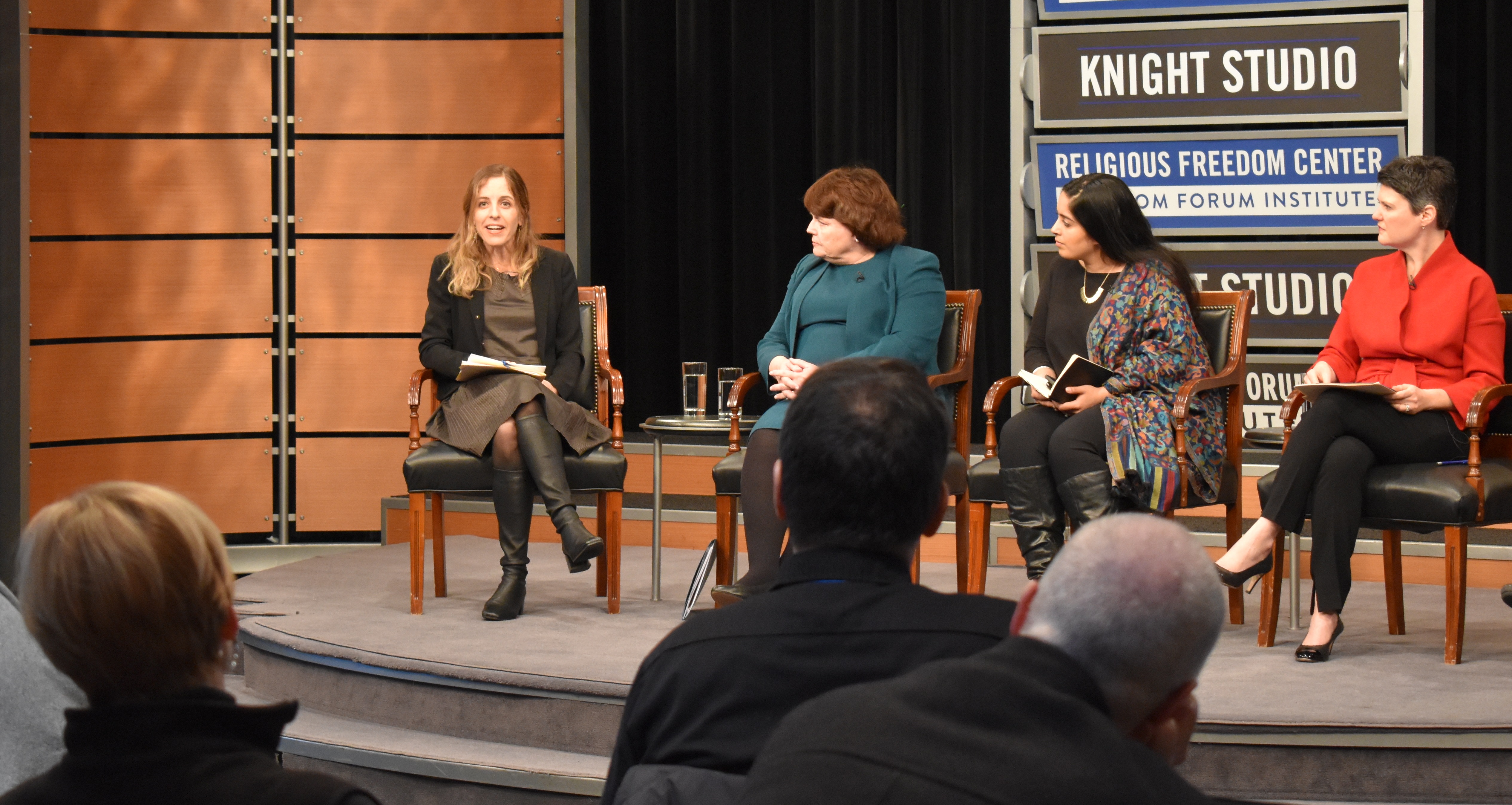I recently took part in an interesting panel discussion, which AU co-sponsored with the Newseum’s Religious Freedom Center, featuring women who lead religious freedom organizations.
As you all know, “religious freedom” today can mean religious freedom for all, or it can mean religious freedom for some – depending on who is using the term. It can mean protecting the rights of those who are most vulnerable and tend not to belong to the majority religion in our society, or it can mean weaponizing religion to justify causing harm to others.
The panel for the event included women from both camps, and thus it was my debut appearance with those we deem largely “on the other side” – represented in this instance by Kim Colby from the Christian Legal Society. While we often disagreed, the discussion was respectful.
 (PHOTO: AU President and CEO Rachel Laser, left, speaking at the Newseum.)
(PHOTO: AU President and CEO Rachel Laser, left, speaking at the Newseum.)
As I prepared for the event, I stepped back from the day-to-day of my work to think about some bigger questions. I reflected again on what led me to take this position.
This issue hits me personally. I come from a family of peasants in Eastern Europe who successfully fled religious persecution and were able not only to come to this country, but also to thrive here, thanks to our foundation of religious freedom for all. A lot of my feeling of basic security in America comes from our country’s commitment to freedom of conscience. My family has passed down to me a deep gratitude toward America and a desire to give back. And one critical way to do that is to protect the separation of church and state, without which America wouldn’t be America.
Something else I thought about was the claim I so often hear today that “the rhetoric on both sides is too charged.” This just isn’t accurate.
The rhetoric of the Religious Right can be charged, of course. But these days a lot of it sounds dishonestly benign.
Jack Phillips, the baker who owns Masterpiece Cakeshop, adopted a seemingly innocuous tone in a column shortly before the U.S. Supreme Court ruled on his case: “We all want to belong. I’m no different.” But what he really should have said is: “I believe conservative Christians deserve special privileges in our society, including the right to cause harm to those we view as sinners, and that people like me should not have to follow the laws that protect such people.”
Yes, that rhetoric would be considerably more charged – but also more accurate.
On the other side of the coin, the Supreme Court ruled in Masterpiece that a Colorado civil rights comissioner’s language displayed animus toward religion, when, to many of us, what the commissioner said was merely honest.
The commissioner had noted that freedom of religion has historically been “used to justify all kinds of dicrimination throughout history, whether it be slavery, whether it be the Holocaust … we can list hundreds of situations where freedom of religion has been used to justify discrimination. And to me it is one of the most despicable pieces of rhetoric that people can use, to use their religion to hurt others.”
Sadly, that statement, far from being hostile, is just true, as the NAACP’s friend-of-the-court brief in the Masterpiece case explained. Religion has, of course, been a force for good too, and nothing the Commisioner said negates that. But there’s no denying that religious claims have often been asserted to justify discrimination.
Simply put, the rhetoric isn’t charged – the reality is.
The constant attacks on church-state separation these days keep us all incredibly busy. But it is essential to step back from the chaos to gain clarity about what motivates us to continue this fight and what is really going on, so we can combat the assaults on religious freedom as effectively as possible.
May we never be afraid to speak truth to power.
Rachel Laser is CEO and president of Americans United for Separation of Church and State.


